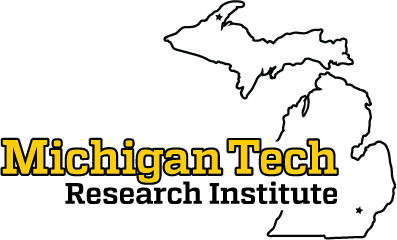The Great Lakes Workshop Series on Remote Sensing of Water Quality brought together international researchers on the remote sensing of inland waters and the end users who put remote sensing products to work monitoring and managing the Great Lakes.
The 2014 series consisted of two workshops, each lasting two days, that included plenary presentations, breakout groups, and networking events. Participants learned about remote-sensing resources and best practices from leaders in the field, connected with other attendees for potential collaborations, and contributed to the development of a working community of practice for Great Lakes remote sensing. Stakeholders gained in-depth insight into how to apply available remote sensing products to their organization’s current challenges and had the opportunity to provide direct input into future priorities for data product development. It is hoped that the series can be continued with annual update meetings in future years.
Overall Goal
Through a series of interactive workshops and use of an interactive web site, establish a network of regional, national and international stakeholders to better utilize remote sensing technologies to address Great lakes issues.
The stakeholders include not only aquatic remote sensing investigators, but managers, regulators, researchers, educators, and the general public and represent federal, state, local agencies, universities and colleges, tribes, and not-for-profit research centers.
Join the Google Group for Great Lakes Remote Sensing
Background
The state of the science of remote sensing of inland waters, particularly the Great Lakes, has progressed significantly over the past decade, in step with investments by NASA in next-generation satellite infrastructure, the improvement of freshwater-specific optical algorithms, developments in aquatic applications of radar and lidar data, and the availability of increasingly capable unmanned aerial systems (UASs) and autonomous underwater vehicles (AUVs), among other advances. However, despite efforts by the Great Lakes Observing System (GLOS), the Great Lakes Commission and other entities to coordinate research and facilitate data sharing, the evolution of a regional remote sensing community of practice in the Great Lakes is still in its early stages. In an effort to provide the basis for continuing advances in the state of science and technology of remote sensing of inland water quality, Great Lakes stakeholders, policymakers, and researchers involved in remote sensing science and monitoring are invited to a series of two workshops. These workshops, and their accompanying interactive website and information sharing system, will provide a platform for collaboration between stakeholders and researchers and help to establish a community consensus on scientific and technical gaps and research priorities in this area. Proceedings from the workshops will include a summary white paper and a community website with networking capabilities and access to meeting documents.
Primary Objectives
- Develop a Great Lakes remote sensing community of practice
- Identify and document the state of the science and practice of Great Lakes remote sensing
- Understand the needs of end users/stakeholders
- Identify gaps in the remote sensing technology and the science based around the remote sensing
- Prioritize gaps to be addressed in respect to the science and technology of remote sensing of the Great Lakes
- Provide recommendations to the 2017 NASA Earth Science Decadal Survey based on the gap analysis and other workshop findings.
Overall Anticipated Outcomes from the Workshops
- Establishment of a network of stakeholders that further the use of remote sensing technologies for Great lakes applications
- A forum to advise NASA on the requirements of future remote sensing systems to address Great lakes issues
- A user-friendly interactive website that facilitates stakeholder interaction
- A comprehensive summary of existing Great Lakes remote sensing products and algorithms with comments on performance and best use practices
- Comprehensive list of where Great Lakes remote sensing data reside
- Summary of the gaps and new requirements formulated during the workshop.
Steering Committee
- Larry Liou, Project Manager, NASA John H. Glenn Research Center
- Robert Shuchman, Co-Director, Michigan Tech Research Institute—Michigan Tech University
- Steve Greb, Hydrologist, Wisconsin Department of Natural Resources (DNR)
- George Leshkevich, Physical Scientist, NOAA Great Lakes Environmental Research Laboratory (GLERL)
- John Bratton, Deputy Director, NOAA GLERL
- Jennifer Read, Executive Director, Great Lakes Observing System (GLOS)
- John Lekki, Optical Systems Research Engineer, NASA John H. Glenn Research Center
User Forums
Interactive user forums for the workshop participants are under development. We would like to solicit input from attendees and interested parties to help shape the focus of the workshops to be as useful as possible to the community. To this end, eight questions have been generated by the Steering Committee. All interested stakeholders, including those who will not be able to attend in person, are encouraged to provide input by clicking on the link below:
Please provide feedback on eight questions related to the upcoming workshops.
Great Lakes Data Sources
Remote Sensing Projects and Data Sources
- Satellite-Derived Great Lakes Remote Sensing
- GLOS AOCs Tributary Monitoring
- MTRI HABs Mapping
- The Upper Great Lakes Observing System (UGLOS)
- Great Lakes Submerged Aquatic Vegetation (SAV) Map
- GLOS Data Portal
- NOAA GLERL CoastWatch Data
- Michigan State CoastWatch
- Great Lakes Information Network (GLIN)
- US EPA Great Lakes Atlas
- USDA NRCS Geospatial Data Gateway
- USGS EarthExplorer
- GLOVIS
- USGS Center for Integrated Data Analysis (CIDA)
- Wisconsin Coastal Atlas
- MichiganView
- OhioView
- WisconsinView
- PennsylvaniaView
- Michigan Geographic Data Library
- Great Lakes Environmental Research Labs' Ice Products
- Radar Detection and Monitoring of Invasive Phragmites in the Coastal Great Lakes
